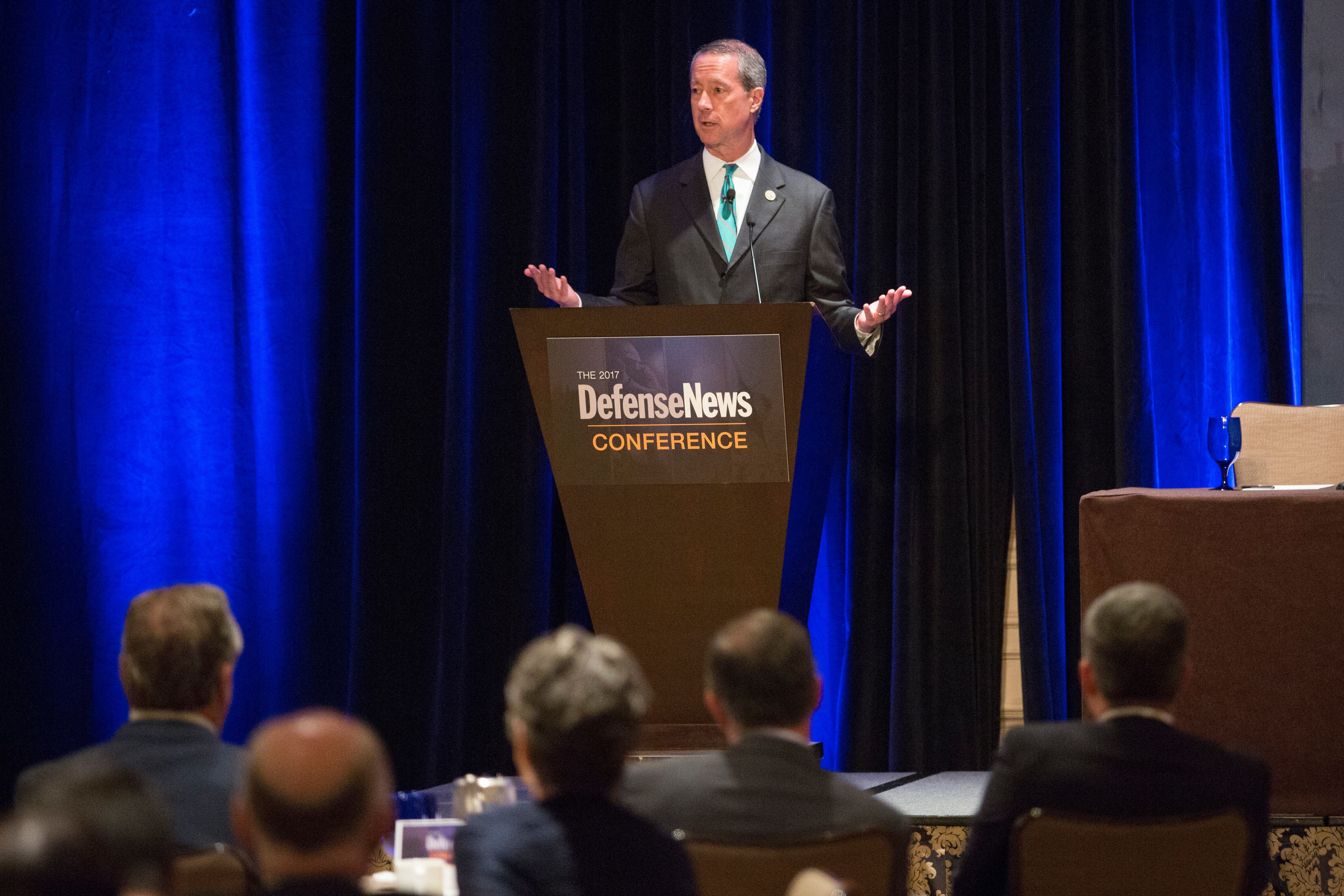WASHINGTON — The chairman of the House Armed Services Committee is keeping a close eye on the health of the defense industrial base, and indicated Tuesday that the next stimulus package could contain money for the Pentagon to both increase its role in fighting the COVID-19 coronavirus outbreak and supporting industry.
In a conference call with reporters, Rep. Adam Smith, D- WA., warned that “Our supply chain, our industrial base, is going to be massively stressed in the months ahead.”
“A lot of work needs to be done with our large contractors to make sure that smaller and medium sized ones can survive,” Smith said.
RELATED

“We are going to have to work in a very creative and aggressive fashion to try to protect our industrial base in a broader way without question,” Smith said.
When Congress passed a $2 trillion stimulus package last month, it carried with it $10.5 billion in funding specifically for the DoD. The money included $1.4 billion in direct funding for National Guard deployments to help state governments respond to emerging health needs, $1.5 billion for the expansion of military hospitals and mobile medical centers if needed, and $1 billion for the Defense Department to help with production of medical supplies running short because of the pandemic.
Smith said there has been preliminary discussions about what DoD needs in an expected next round of stimulus funding. While the chairman appeared cool to an idea he said was floating out of the Senate to fund “a variety of different procurement initiatives,” he implied support for funding to prop up the industrial base, including more advanced payments especially for “the small and medium sized manufacturers that may have a hard time staying in business through this.”
He also showed support for increasing DoD’s role in production of items needed to test for the coronavirus, as the U.S. continues to run low on those supplies. Smith said that he would be open to funding in the next stimulus for DoD to encourage manufacturing of those supplies.
More broadly, the chairman expressed growing skepticism that the budget will be complete by Oct. 1, the end of the fiscal year.
“The likelihood that this goes past Oct. 1 is obviously increasing by the day,” Smith said. “I think you’re going to see a lot of the congressional action that was planned for this year shift to the right.”
“Originally, with the [presidential] campaign coming, the plan was to get done by the end of September. I thought there would be an impetus to get this done. Now that’s likely to slip.”
Aaron Mehta was deputy editor and senior Pentagon correspondent for Defense News, covering policy, strategy and acquisition at the highest levels of the Defense Department and its international partners.








